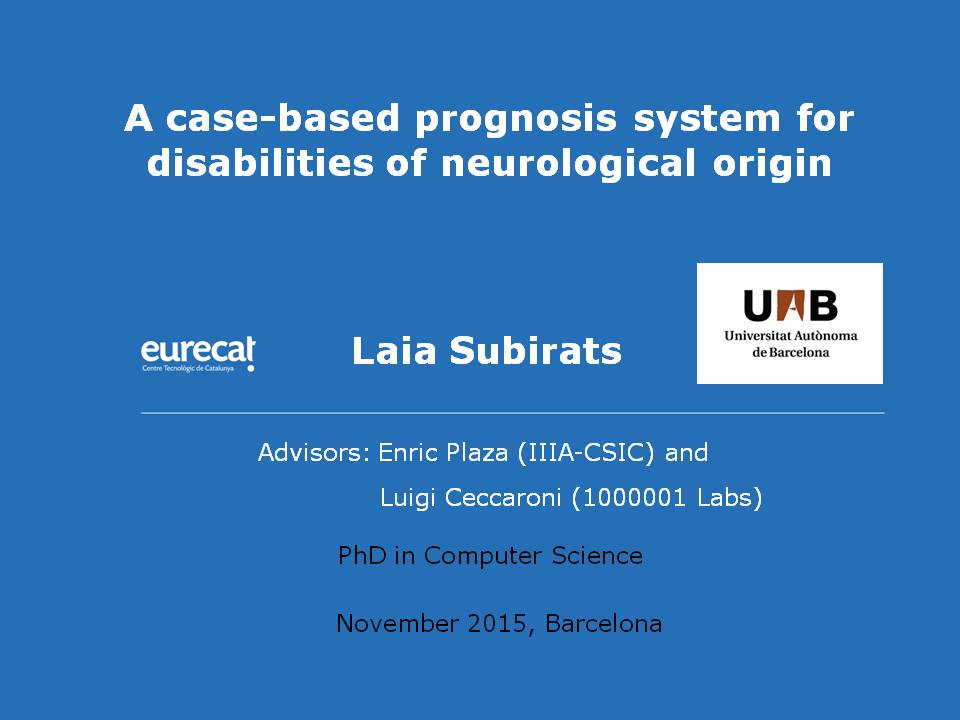Laia Subirats presents her thesis on:
The motivation behind the thesis is related to the negative impact of neurological diseases on human society.
Objectives of the thesis:
- To generate an automated translation of Medical Health Records (MHRs) to international standards promoted by the WHO
- To represent all concepts involved using an ontology
- To provide new visualization interfaces to allow clinicians to understand both the status and evolution of individuals and populations
- To improve the prognosis through:
– developing a case-based reasoning system with a time-aware similarity measure; and
– providing a better understanding of the temporal context of attributes - To study the role played by time in four different prediction domains using case-based reasoning
- To present a novel approach for Case-based Prognosis using Temporal Abstractions (CAPTA)
- To detail the case description and the temporal representation
- To propose a similarity measure with a novel temporal representation
- To evaluate the approach in four domains and to compare the evaluation with a baseline of existing methods
- To describe a visualization of CAPTA
Conclusions of the thesis:
- An automated translation of MHRs to international standards promoted by the WHO has been generated.
- All concepts involved are represented using an ontology.
- Professionals found the monitoring system useful to generate new knowledge and solving interoperability problems.
- People with disabilities found helpful to enrich personal knowledge with the experiences of other users and to perform online follow up questionnaires after clinical discharge. As a consequence, the monitoring system has potential to promote user empowerment and making decisions with a more informed opinion.
- Regarding prognosis and MAE, CAPTA is clearly better than the state of the art in 3 domains and equal in 1 domain; and regarding accuracy, CAPTA is equal in three domains and has clearly a better accuracy in one domain.
- CAPTA is highly flexible and different temporal representations can be used in different data sets.
Future work:
- Regarding interoperability, we are planning to extend the use of the proposed approach for QALYs evolution in periodic comprehensive evaluations of people with disabilities of neurological origin.
- The monitoring system will be promoted at the Institut Guttmann – Neurorehabilitation Hospital among patients and clinical staff (especially psychologists and social workers). It is also planned to involve other institutions such as other reference healthcare centers, patient organizations, public health systems, and private enterprises.
- Prognosis will be included in the monitoring system and will be validated by the clinical staff. In addition, the indexing method of the time-series will be improved in order to provide minimal space consumption and computational complexity. The interface will be able to be customized (1) by selecting which attribute is to be predicted, and (2) selecting the number of similar cases shown.
